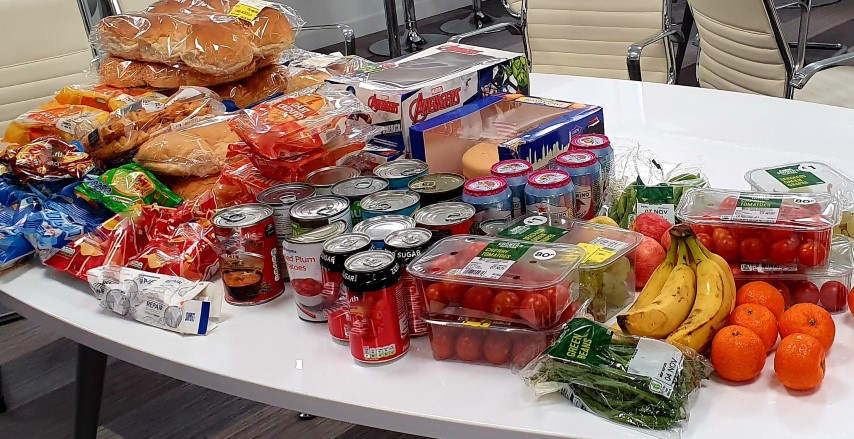Sustainability is high on the agenda for Borders College and BCSA, and when they realised how much edible food was going to landfill from supermarkets, they wanted to do something to help. They realised that they were in a perfect position to redistribute low-risk foods nearing their best before date to students and teamed up with food charity Fareshare in a bid to make a difference!
The project kicked off back in October where BCSA was initially working with Fareshare and ASDA to redistribute surplus food to students. The initiative soon grew to include Tesco and ran for six months until lockdown forced a pause.
BCSA made 26 collections and redistributed 629kg of edible food to students in this time. This was their little contribution to reducing the 9.5 million tonnes of food wasted by retail supply chain, hospitality and homes in the UK each year.
Students have received fruit and veg, split packs of juice, water and crisps and more bread, rolls, cakes and pasties than you would believe! The project is on hold while the College buildings are closed but the BCSA look forward to restarting when possible.
Most of the food was redistributed at Scottish Borders Campus but they also teamed up with Co-op Foodshare to ensure that the Newtown St Boswells campus was also helping redistribute the surplus.
Although the initial motivation was to reduce the amount of edible food heading to landfill, a side effect of the project was that students were able to save money on their weekly shop by picking up various items at College for free.
To keep the project as sustainable as possible, most collections were made in one of the College’s electric cars. These are perfect for the short journey to the supermarket and ensuring the redistribution of food does not contribute to unnecessary emissions.
An enthusiastic team of student volunteers helped to run the free market stall, ensuring food was distributed to students fairly.
Student President for the BCSA, Ann Letham, said:
“Whilst I am delighted that BCSA was able to help reduce the volume of food heading to landfill, we all need to examine our shopping habits. We need to buy the amazing local, seasonal food produced in the Borders to lower emissions caused by food production. Until the time comes when there is no food surplus, I think it is a great option to redistribute the food to students.
“It helps reduce their food bills while knowing they are helping the environment. We are grateful to Fareshare, Tesco, Asda and Co-op for working with us, and to the student volunteers for running the project in College. We are also grateful to Café Recharge for working with us and deeply admire all the work they have done during lockdown.”

